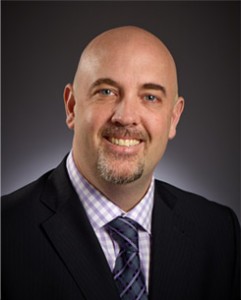Here’s my latest MoneySense blog, which it titled Is your advisor retirement ready? It came out of a conference I attended in Niagara Falls last week: the National Elder Planning Issues Conference. I had delivered the keynote address on why Longevity changes everything — a theme you’ll often see in the Hub’s Longevity & Aging section — but also sat in on a couple of sessions on which this blog is based. As you’ll see it’s also quite relevant to our Decumulation & Downsizing section.
For archival and one-stop shopping purposes, here’s the blog below, with a few photos and subheadings added:
By Jonathan Chevreau

Aging Canadian baby boomers are increasingly in the sweet spot for financial planners and eldercare professionals. At last week’s National Elder Planning Issues Conference in Niagara Falls, founding faculty member Peter Wouters and a director of Empire Life Investments told the audience it needs to rethink retirement and its relevance to their practices.
Wouters described a “silver tsunami” of leading-edge boomers that started turning 65 four years ago. Now the eldest members of that cohort start turning 70 next year; indeed 12,500 North Americans turn 50 every day or one every seven seconds.
He reminded advisors their customers may know what they’re retiring from, but many have only a vague idea of what they’re retiring to.
When the industry interviews pre-retirees they think they will miss the money once they retire but in practice, retirees miss the social interaction; hence many “unretire” or launch encore careers.
And advisors are aging right along with their customers: Wouters pointed out the average age of an advisor in Canada is now 58. Most of their clients have not tried to redefine who they are going to be next so many return to work, which is how they identify themselves to others. This is one reason most advisors themselves don’t retire.
Because of the great unknown of how long retirement will be – I pointed out in my own talk that the trend is to greater longevity and longer workspans – there’s still a lot of fear and uncertainty about how long money will last in retirement. Wouters said only four in ten know the amount of future retirement income they will need; 61% of affluent boomers know the number but only 28% of those with middle incomes do. And even if they know the number, they don’t know if it will be enough.
The good news is also the bad news
“The good news is we will live a long, long time. The bad news is we will live a long, long time.”
This uncertainty presents a planning opportunity for professionals prepared to focus on this cohort. 56% need help understanding what investments will best suit their needs; 53% want to know how retirement portfolios will react in certain markets; 53% need assistance adusting portfolios for how they will react in certain markets; and 51% need help deciding how much they will require in retirement.
Elders want to be treated holistically, and need someone to pull it all together and make sense of all the plans, products, documentation and surrounding issues.
Wealth Accumulation vs Decumulation
More than one speaker mentioned there is a big difference between Wealth Acccumuation and De-accumuation, also known as Decumulation. As Wouters put it, when you’re a pre retiree still in the workforce, investment income is merely nuisance income that has to be reinvested and taxes paid on it annually. But in decumulation, it becomes one of several important income sources, along with two sets of CPP, two sets of OAS, LIRAs, RRSPs, seg funds etc, all taxed and reported differently. The challenge is to replicate the income from multiple sources that previously may have come from just one or two streams of employment income.
Most investors would give up 100 or 200 basis points of annual return in exchange for regular meaningful contact with an advisor, Wouters said. “That says regular contact is more important than shooting the lights out on performance, which in their heads they know is not sustainable.”

Nathan Kupusa, president of Solutions for Aging, said advisors need to “Seniorize” their practices because their clients have also changed. Most financial advisors are generalists focused on life events earlier in the life cycle: career job, marriage, first home, children paying down debt and building savings.
But they’re less equipped to deal with the life events of the elderly, including eight stages of retirement, health issues, loss of independence and mental capacity, and family issues like the empty nest and the sandwich generation. Expertise is also needed on fraud prevention, housing, end-of-life issues and funeral arrangements.
Kupusa’s own practice is designed for seniors, with appropriate office space with accessible parking and mobility, no background noise, and the need for soft skills like patience, empathy and listening.
Caregiving huge emerging issue
A huge issue is health and caregiving: some 8 million Canadians provide care to a chronically ill or disabled friend or love one. With longer life expectancy comes more chronic health issues, dementia and loss of cognitive ability. “Health is always a priority over finances, triggered by a crisis.”
Health care costs are approaching $216 billion a year in Canada, while they make up 42% of Ontario’s annual budget, a figure expected to rise to 50%. “Government funds are drained and changes are coming.”
But despite the huge part health care will play in their clients’ lives, only 22% have saved or planned for health-care expenses, even as 53% worry about the cost of drugs and medical treatment in retirement. 47% worry about being in long-term care longer than they are prepared for financially. And “76% are stressed out, citing money, money, money as the top three factors.”
You can’t plan without knowing the cost: he cited long-term care expenses of $2,300 to $2,500 a month, and retirement residences cost $2,800 to $4,500 or more. In-home nursing PSW (Personal Support Workers) charge $21 to $25 an hour, while a registered nurse costs $45 an hour.
MoneySense contributing editor Jonathan Chevreau runs the Financial Independence Hub and can be reached at jonathan@findependencehub.com




Financial advisors need to understand that financial planning fails without life planning. A good advisor will assist in the creation of a client’s life plan which is unique to them and ensure the life plan is aligned with the financial plan. Good advisors have a more holistic approach and help with the possible non-financial retirement challenges that their client might face: loss of identity, social/relationship issues/anxiety/depression/health issues. Most retirements will fail for non-financial reasons rather than financial ones.